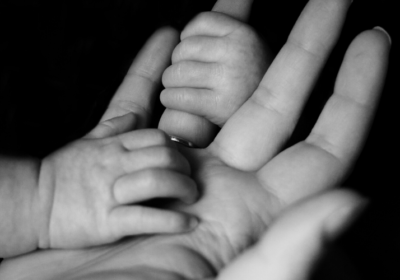Sometimes I think organizations hire me just to talk about things like “masturbation”. When is the last time a parent posted on Facebook about their kindergartner, “Noel just showed the neighbor her vagina and asked to see his penis!” Or how about, “I caught Miles looking at pornography for the third time!” Both of these things are about as common as someone winning the cross country meet, but they aren’t discussed. Parents are discreet about sex, and by the time most kids go through puberty, the kids understand this discretion. However, this isn’t true of all kids.
Things parents put on their list to tell:
- Tommy knows all of his letters, and he is only two. We always knew he was ahead of his peers.
- Suzie makes the best cupcakes. Plus, they taste amazing, unlike the store-bought kinds.
- Eleanor has never made a B in her life. We never have to tell her to study.
Things parents put on the list not to tell:
- Tommy discovered his penis today and won’t stop touching it. Boys are so proud of their penises!
- We have caught Suzie looking at pornography three times now. She sure is a curious girl!
- Eleanor just sent a naked picture of herself to her little seventh grade boyfriend. I think she is very interested in photography!
There are all sorts of lists online of what “normal sexual development” is at different ages. The problem with those lists is that they aren’t designed to reflect children who have endured complex trauma. I am not only referring to children who have been sexually abused, but also referring to children who have not been abused, but are in some ways emotionally and socially half their chronological age. That means that a twelve-year old girl going through puberty is emotionally six. How many six-year olds do you know that could handle the mess of having a period well? I would say probably not a single one.
What about twelve-year old boys with complex trauma who are emotionally and socially six-years old? I wonder what they do when they start having spontaneous erections during the school day. What might a six-year old do if that happened? Years ago, a little boy came over to our house for a sleepover and told us all sorts of things about his parents. Apparently, his dad sleeps completely naked and owns no underwear, but sometimes borrows underwear from mom. This sounded like oversharing to me, and I encouraged him not to talk about his parent’s underwear anymore while I muffled my own laughter. Six-year olds aren’t known for their discretion. So let’s go back to our twelve-year old with complex trauma. He might just show someone his erection. He might call someone’s attention to how big his penis just got. Either way, he would not show the discretion that would be expected for a child his age and would end up alarming all sorts of children and adults.
Another specifically confusing thing about kids that are going through puberty is that there is socially acceptable potty talk with a group of same-gender friends, but don’t you dare say those things to someone of the opposite gender or to an adult. Other kids seem to understand this. Other adults come near them, and they immediately change the subject. The kids I work with are often the only ones left talking loudly when the adult approaches and hears them. Off to the principal’s office they go, when the reality is they weren’t the only ones engaging in inappropriate conversations; however, they were the only ones that didn’t show discretion in engaging in that conversation.
A suggestion:
Don’t over-react. The discretion that other kids naturally have will need to be taught and spelled out instance by instance. Most parents consider sex education as teaching about safe sex, how babies are made, and what is going on in the young person’s body. This is just not enough information for these kids. They need things spelled out like what do you do exactly when you get a spontaneous erection, where and when is it appropriate to masturbate, how close can you stand to a person before they get uncomfortable, etc.
What you wish you didn’t know:
Normally developing teens develop discretion around their sexuality. Parents give them a few sex talks, and then don’t worry about the kids until they start dating or getting into trouble. Parents of children with complex trauma often know way more about their children’s developing sexuality than they wish they knew. Be a bold teacher and understand that many times the normal developing teens and the teens with complex trauma are engaging in the same behaviors, but maybe it is only obvious in your “at risk” kids.
Consider the child’s developmental age before giving him/her privileges reserved for “teens”.
It is not uncommon for parents to come to me when their kids have cell phones and say, “He was looking at pornography sitting right across from me at the kitchen table.” It is horrifying to parents that the child would do this in such close proximity to them. I read a statistic that the average teen boy watches 50 pornographic videos per week. This is disturbing to me on so many levels. Other kids are looking up porn too, but it is this seemingly brazen behavior that really alarms parents. I don’t think teens of any type should have a device that their parents cannot supervise. You would certainly not give a six-year old a phone with the internet, so a better fit would be a flip phone without the internet.
Understand the difference between predatory behaviors and non-predatory behaviors
I have worked with many children that have some sexual acting out behaviors, but only a very small percentage of those kids are predatory. Predatory kids typically have many victims before puberty. They manipulate, threaten, or convince children who are younger or in some way much more vulnerable than them to engage in sexual behavior. This article is not speaking to predatory behaviors. It is speaking to inappropriate and immature behaviors that lack discretion.



